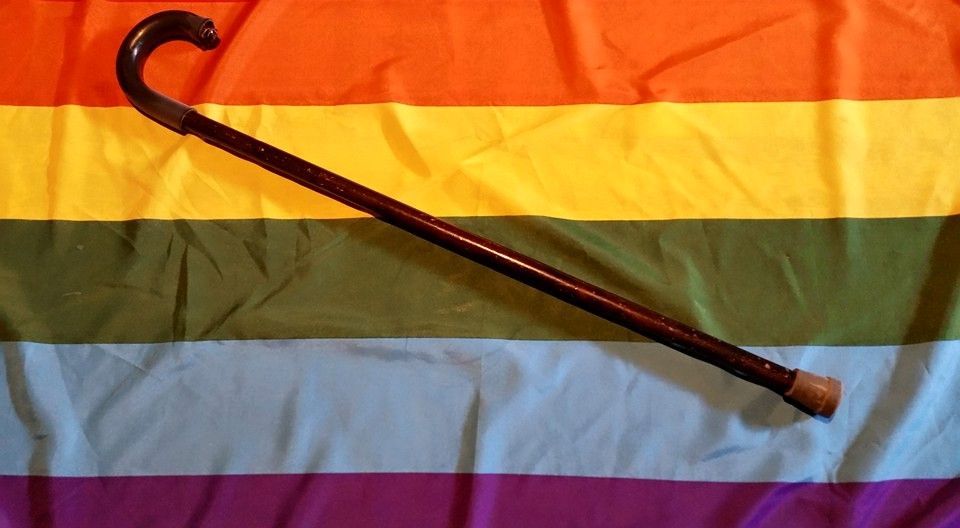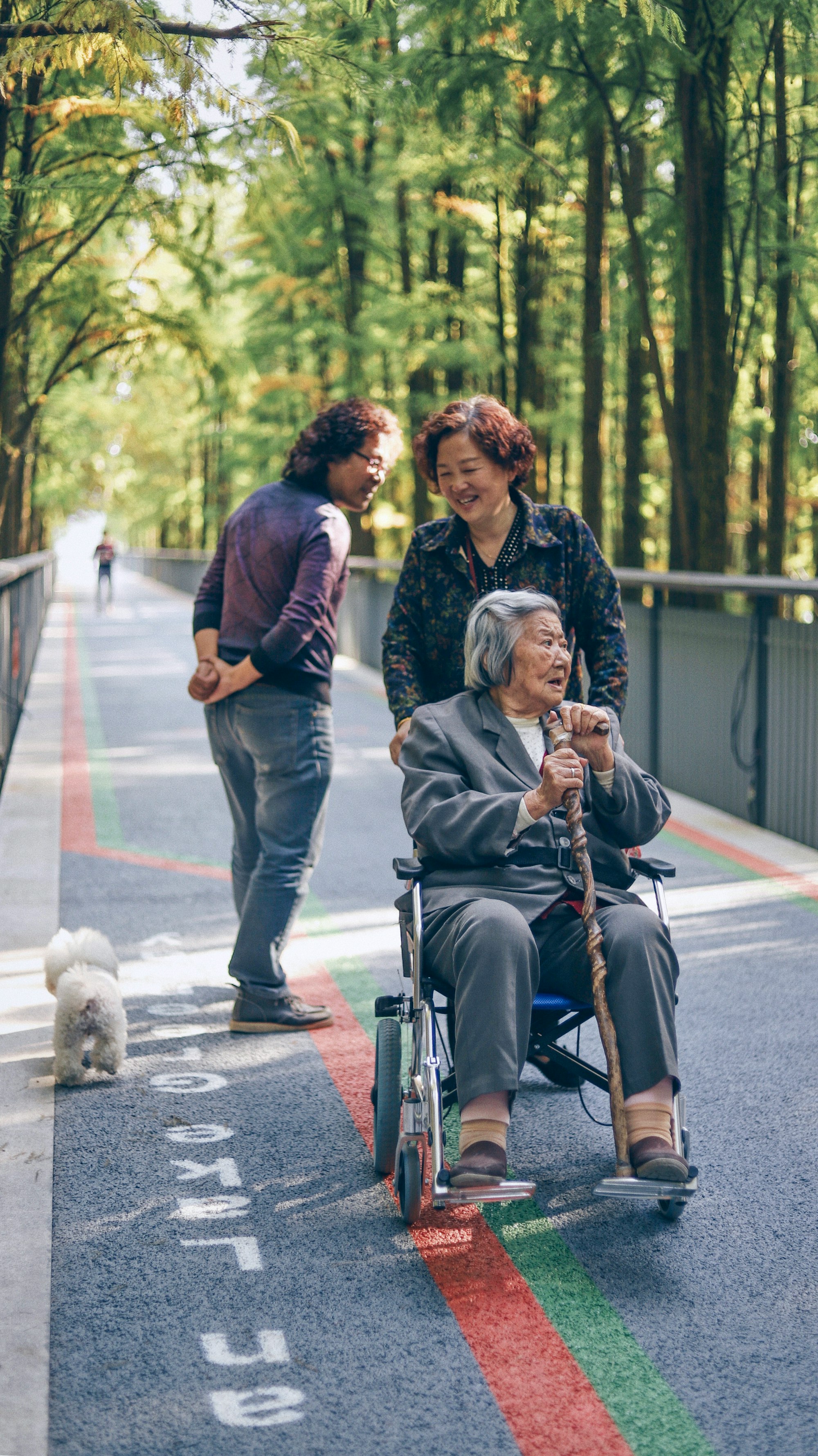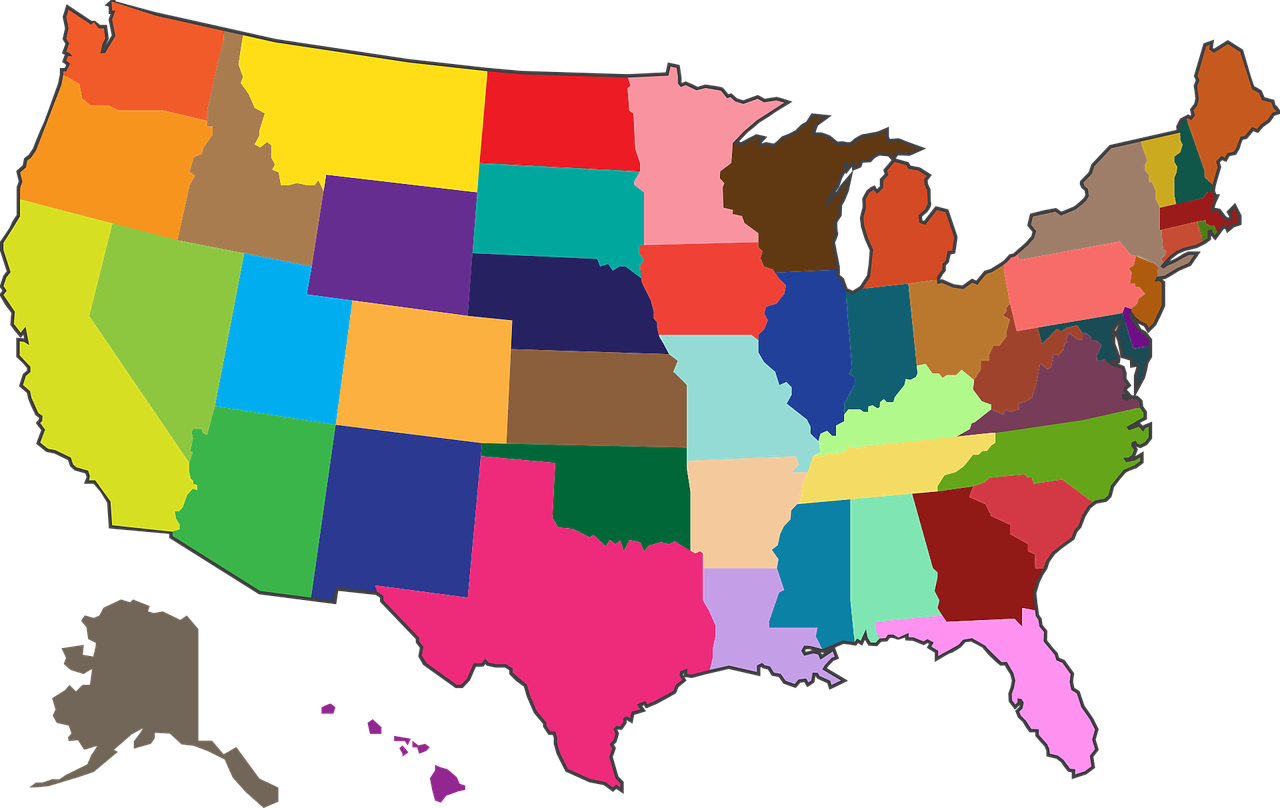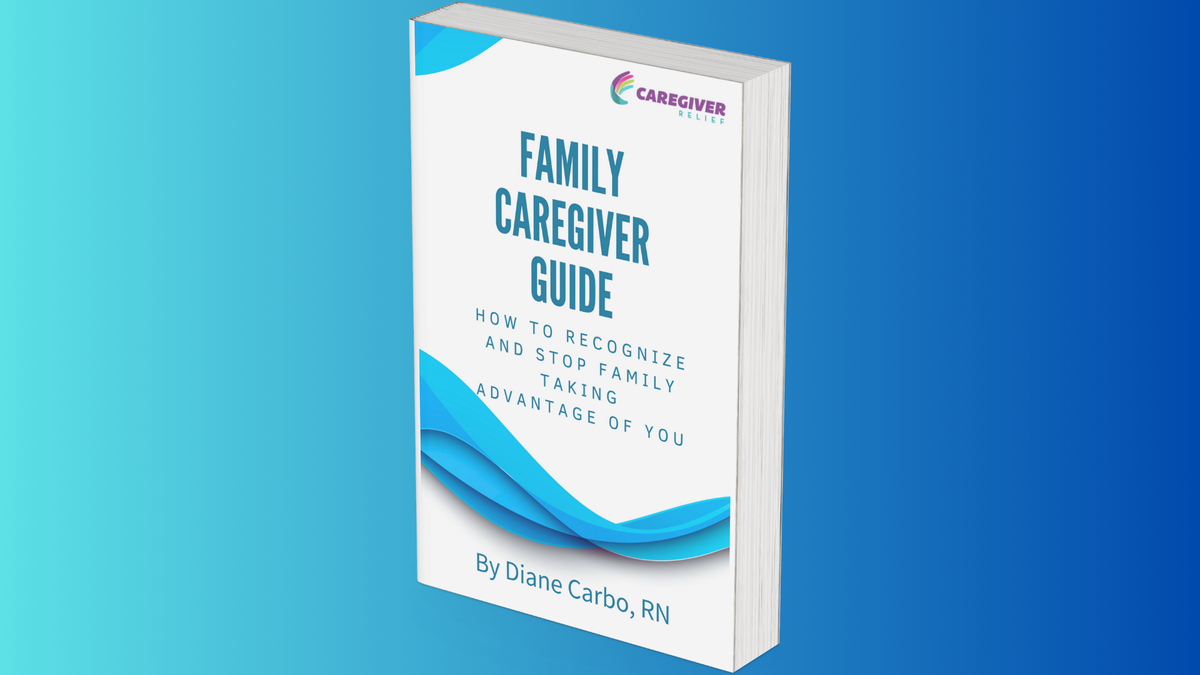LGBT End of Life Planning: Supporting Caregivers Through a New Program in Baltimore
As many as 25% of Baby Boomers are "elder orphans" without familial support. Chase Brexton Health Care launches SAGECAP Baltimore to provide resources, education, and support for unpaid LGBT caregivers in the community.

By David Heitz
Definition of LGBT Caregivers
LGBT caregivers are individuals who identify as lesbian, gay, bisexual, or transgender and provide care for a loved one. Often, these caregivers face unique challenges, including estrangement from their biological family, which can necessitate reliance on chosen families for support and caregiving roles. This dynamic underscores the importance of defining who constitutes family beyond mere biological ties.
Introduction to LGBT Caregiving
LGBT caregiving refers to the care provided by individuals who identify as lesbian, gay, bisexual, or transgender (LGBT) to their loved ones, often in the context of end-of-life care. These caregivers play a vital role in supporting their partners, friends, and family members who are facing serious illnesses or nearing the end of life. The unique dynamics within the LGBT community often mean that caregiving responsibilities fall on chosen families rather than traditional family structures. This can include providing emotional support, managing medical appointments, and ensuring that their loved ones’ wishes are respected during their final days.
Definition of LGBT Caregivers
LGBT caregivers are individuals who identify as LGBT and take on the responsibility of caring for their loved ones, often in the absence of traditional family support. These caregivers may be partners, friends, or members of a chosen family who step in to provide the necessary care. Unlike biological families, chosen families are formed based on mutual support and understanding, often becoming the primary source of care and companionship. LGBT caregivers provide a range of support, from emotional and physical care to practical assistance, ensuring that their loved ones receive the best possible care during challenging times.
Importance of Supporting LGBT Caregivers
Supporting LGBT caregivers is crucial to ensuring that they can provide high-quality care to their loved ones. These caregivers often face unique challenges, including fear of discrimination, lack of recognition, and limited access to resources and support. By acknowledging and supporting LGBT caregivers, healthcare providers can help ensure that they receive the care and support they need to provide optimal care to their loved ones. This support can come in various forms, such as providing access to LGBT-friendly resources, offering caregiver support groups, and ensuring that healthcare providers are trained in LGBT cultural competency. By addressing these needs, we can help create a more inclusive and supportive environment for LGBT caregivers.
Aging LGBT Population Needs To Prepare For Their Trip Over The Rainbow
As many as 25% of Baby Boomers are “elder orphans” without familial support. Chase Brexton Health Care launches SAGECAP Baltimore to provide resources, education, and support for unpaid LGBT caregivers in the community.
LGBTQ Population suffers from ageism
Gay people tend to spend much of their lives thinking they’ll never get old.
And then they do. Sadly, often alone
“In the LGBT community we are very ageist,” said Nate Sweeney, executive director of the LGBT Center at Chase Brexton Health Care in Baltimore. “We don’t like to think about ourselves getting older, or getting sick.”
I wrote a this two-part series on LGBT caregivers. The reality is many LGBT people find themselves alone. Without blood relatives, children or a spouse when they get into their golden years. They often have no one to rely upon than other LGBT people, who often are not their partner or spouse, to care for them.
“If I get hit by a car, my husband can go into the hospital. He can tell them what my wishes are. That’s a great piece of marriage equality,” said Sweeney, who is legally married. “But the vast majority of LGBT people are not married, have no children, and live alone.”
For those who do have partners, or if they are not legally married that becomes a problem. If they don’t have advance directives in place, who will make end of life decisions for them? Future research is needed to explore the lived experiences of LGBTQ+ older adults in the context of end-of-life care.
LGBT older adults are part of a vast group of Baby Boomers called “elder orphans.” As many as 25 percent of Boomers are elder orphans, as CNN reported in May.
That’s why Chase Brexton just launched a new program called SAGECAP Baltimore.
The program provides:
- Resources
- Education
- Support for informal, unpaid LGBT caregivers in the community.
“LGBT people for years have been caring for their families of choice,” Sweeney said. “They moved across the country, and they are isolated from blood relatives. Some started caring for an ex partner from 15 years ago. All because they don’t want that crazy sister that’s five states away making medical decisions.”
There also is a SAGECAP program in New York City, but it is run out of a senior center, not a healthcare facility. SAGE is an acronym for the New York-based Services & Advocacy for Gay, Lesbian, Bisexual & Transgender Elders.
According to SAGE, family members provide 80 percent of long-term care in the United States. Older LGBT adults often are estranged from their families. LGBT seniors are twice as likely to live alone and three times more likely to be without children.
One Stop Elder Care, End of Life Care, Caregiver Referrals
The Chase Brexton program is being funded with a three-year grant. This grant is from the Harry and Jeannette Weinberg Foundation. This program is unique. The Chase Brexton is a federally funded, holistic healthcare center.
Services range from LGBT-centered caregiver support groups to full blown case management.
“As you know, it’s very isolating being the caregiver,” Sweeney said. “So being able to reach them and find them is difficult. That’s why we’re partnering with other interested providers. so they can make referrals to our services. We’re hoping we’re building something that can be replicated at other LGBT health centers.”
On the national level, SAGE has provided cultural sensitivity training to several organizations. They have worked with the Alzheimer’s Association of America. The Alzheimer’s Association has provided caregiver support training to SAGE.
At Chase Brexton, caregivers can get support. They also receive referrals for themselves. This occurs when they bring their loved ones for medical appointments. Services may include referring a caregiver to a mental health therapist, for example.
Chase Brexton also will be able to tell LGBT people about the necessary paperwork they need. Advanced planning designates someone to make their healthcare and end of life decisions. It’s not something many LGBT people think about. Health care professionals play a crucial role in supporting LGBT caregivers and ensuring their unique needs are met.
More on Aging LGBT Population Need To Prepare For Their Trip Over The Rainbow…
A PBS documentary, “Before you Know it,” was enlightening. I reviewed this for Healthline Contributors. Filmmaker P.J. Raval said, “When people watch this film, I hope they learn the aging process does not discriminate. It’s actually something that happens to all of us. Gay men are having some of the most extreme examples of ageism. They experience isolation, without a family structure, often single and with no children. They have to make their own communities and find their own communities.”
Incorporating diverse lived experiences into research is crucial to inform policy and clinical practice, ensuring that healthcare strategies meet the unique needs of marginalized subgroups.
Fear of Discrimination in End-of-Life Care
One of the most significant challenges faced by LGBT caregivers is the fear of discrimination in end-of-life care. LGBT individuals may worry that their sexual orientation or gender identity will lead to inadequate or inappropriate care from healthcare providers.
This fear can be particularly pronounced in end-of-life care, where individuals are more vulnerable and dependent on the support of healthcare professionals. Discrimination can manifest in various ways, from insensitive comments to outright refusal of care, making an already difficult time even more challenging. By acknowledging and addressing these fears, healthcare providers can help create a more inclusive and supportive environment for LGBT caregivers and their loved ones, ensuring that everyone receives the respectful and compassionate care they deserve.
Elder Care: An American Healthcare Crisis for Health Care Providers
Caring for the elderly has become a healthcare crisis in America. Over 10,000 Baby Boomers turn 65 years old every single day, and health care providers play a crucial role in recognizing and addressing the unique needs of LGBT seniors. Many Baby Boomers already are caring for their own parents. Not to mention that they’re getting older themselves
"Among Baby Boomers who care for their parents, it is their LGBT children that step up to the plate. The LGBT community is willing to provide care compared to their heterosexual siblings. Sweeney said. And it’s often because of the very thing that threatens their own livelihood when they get older – they’re alone."
“Our healthcare system for elders in this country needs a lot of work,” Sweeney said. “We don’t value the elderly in our society. All these systems have been brought up not to value our elders, nor the staff who works in these fields.”
I wrote a story for Healthline News. “The People Caring for Your Parents Live in Poverty,” reports on the low pay that home health care workers receive.
For LGBT seniors who seek care in an alternative setting, they often find forced back “into the closet”. For seniors who blazed the trail for equal rights for gay men and lesbians, it adds insult to aging. I wrote about that last year in this story for Los Angeles Times Content Solutions.
SAGECAP Launched in Baltimore to Support Chosen Family
SAGE is working nationally to change that reality. It has provided to training to more than 3,000 elder workers in 27 states. They help to create more affirming environments in nursing and assisted living facilities. Training varies from online courses to in-depth, on-site training. The organization even provides facility audits. Inclusive practices within hospice and palliative care settings are also emphasized to address the unique challenges LGBTQ+ individuals face, ensuring dignity and respect in care decisions.
“Reforming the entire aging services industry…it’s a huge undertaking,” Sweeney said. “There are 11,000 McDonald’s in the U.S. There are 16,000 nursing homes. That’s not something we think about when it comes to making systemic changes. The corner we’re starting in is about the caregiver. It is about helping LGBT older adults prepare for their own futures.”
SAGE's Ongoing Commitment to LGBT Older Adults' Aging Issues in 2024 and Beyond
SAGE, or Services and Advocacy for LGBTQ Elders, has been at the forefront of addressing the unique challenges faced by older adults in the LGBTQ community. As we enter 2024, SAGE continues to make substantial strides in providing vital services, advocacy, and support for LGBTQ elders, acknowledging the diverse gender identities within this community. In this update, we will explore what SAGE has been doing in 2023 and what is on their agenda for 2025 to better serve this marginalized group.
SAGE's Agenda for 2024
While SAGE has made significant progress in addressing the unique needs of LGBTQ elders, their agenda for 2024 is forward-thinking and aims to further support this community.
- Enhanced Outreach and Education: In 2024, SAGE plans to expand its outreach efforts to reach even more LGBTQ older adults who may not be aware of the services available to them. Education about their rights, available services, and opportunities for community engagement will be a key focus.
- Promoting Age-Friendly Communities: SAGE is committed to promoting age-friendly communities that are inclusive and supportive of LGBTQ elders. They will work with local governments and community organizations to advocate for policies and practices that create welcoming environments for LGBTQ seniors.
- Diversity and Inclusion Initiatives: Recognizing the diversity within the LGBTQ community, SAGE will continue to work on ensuring that their services and programs are inclusive of the unique needs of transgender and non-binary elders, elders of color, and those with various intersectional identities.
- Addressing Healthcare Disparities: In 2024, SAGE aims to intensify its efforts to reduce healthcare disparities among LGBTQ older adults. This includes working with healthcare providers to eliminate discrimination, promote LGBTQ cultural competency, and improve access to quality healthcare. Additionally, there will be a focus on palliative medicine to address the unique end-of-life needs of LGBTQ individuals.
- Fighting Elder Abuse: Elder abuse is a concern for all older adults, but LGBTQ elders may face unique vulnerabilities. SAGE will continue to work on programs and initiatives to prevent and address elder abuse within the LGBTQ aging community.
- Creating Safe Spaces: SAGE plans to establish more LGBTQ-affirming and welcoming senior centers and community spaces in regions where such resources are currently limited. These spaces will offer opportunities for social interaction, support, and a sense of belonging.
- Intersectional Advocacy: Recognizing that many LGBTQ older adults belong to other marginalized groups, SAGE will continue its intersectional advocacy efforts. This includes addressing the disparities faced by LGBTQ elders with disabilities, low-income LGBTQ elders, and those living in rural areas.
- Research and Data Collection: SAGE will invest in research and data collection efforts in 2024 to better understand the evolving needs of LGBTQ elders. This information will help tailor their services and advocacy more effectively.
Conclusion
SAGE’s commitment to the LGBTQ aging community remains unwavering in 2023 and beyond. Their continuous efforts to provide services, advocate for policy change, and create inclusive and affirming spaces have significantly improved the lives of LGBTQ older adults by recognizing various sexual orientations. Looking ahead to 2024, SAGE’s agenda is ambitious and forward-thinking, focusing on expanding their reach, promoting inclusivity, and addressing the unique challenges that this community faces.
As the population of LGBTQ elders continues to grow, the work of organizations like SAGE is increasingly crucial. By addressing the unique needs of this community and advocating for their rights, SAGE is making a profound and positive impact on the lives of LGBTQ older adults, ensuring that they age with dignity, respect, and access to the services and support they deserve.
Update for Sage 2025
SAGE: Advancing LGBTQ Elders' Rights and Support into 2025
SAGE (Services & Advocacy for LGBTQ+ Elders) has long been a trailblazer in addressing the unique challenges and needs of the LGBTQ elder community. Recognized as the oldest and largest organization dedicated to improving the lives of LGBTQ+ older adults, SAGE has made tremendous progress in providing resources, advocacy, and community-building opportunities for this often underserved population.
As we look toward 2025, SAGE’s forward-thinking agenda reflects its commitment to fostering a world where LGBTQ elders can age with dignity, respect, and full access to the resources they deserve. This visionary plan prioritizes inclusivity, equity, and resilience while focusing on several key areas:
Expanding Housing Solutions
SAGE has been a pioneer in creating LGBTQ-friendly senior housing. By 2025, they aim to increase the availability of affordable, inclusive housing options nationwide. Recognizing the vulnerability of LGBTQ elders to housing discrimination, SAGE plans to work with policymakers and developers to ensure safe, affirming spaces where LGBTQ seniors can thrive.
Enhancing Healthcare Access
Access to LGBTQ-competent healthcare remains a significant barrier for many older adults. SAGE’s agenda includes expanding training for healthcare providers, advocating for inclusive healthcare policies, and promoting mental health resources tailored to the LGBTQ elder community. Their goal is to ensure that all seniors can access compassionate, knowledgeable care regardless of their identity.
Fighting Discrimination and Isolation
LGBTQ seniors are often at the intersection of ageism and homophobia/transphobia, leading to unique challenges. SAGE will intensify its advocacy efforts to combat discrimination in all forms, from workplace protections to social services. The organization also plans to grow its outreach programs, fostering connection and combating isolation through expanded community services and virtual engagement.
Strengthening Financial Security
Economic insecurity disproportionately affects LGBTQ elders due to a lifetime of discrimination in employment and benefits. SAGE’s 2025 agenda includes advocating for policies that address these disparities, such as Social Security reform and increased funding for elder services. Additionally, SAGE will provide financial literacy resources and support for long-term planning.
Advocating for Federal Protections
SAGE will continue to push for comprehensive federal protections that safeguard LGBTQ elders' rights, such as the Equality Act and other legislation aimed at eliminating discrimination. They will also advocate for better data collection on LGBTQ aging to inform policy and program development.
Building Intergenerational Connections
Recognizing the value of mutual learning and support, SAGE plans to expand initiatives that bring together LGBTQ individuals of all ages. These programs will foster mentorship, reduce stigma, and promote understanding across generations.
A Vision for the Future
SAGE’s agenda for 2025 is not just about addressing the immediate needs of LGBTQ elders; it is about creating a society that values, uplifts, and celebrates this community. By expanding housing, improving healthcare, fighting discrimination, enhancing financial security, and advocating for systemic change, SAGE is building a future where LGBTQ elders can live their fullest lives.
Through these efforts, SAGE remains a beacon of hope, resilience, and advocacy, ensuring that LGBTQ+ elders are never left behind.
You might also like this article:












